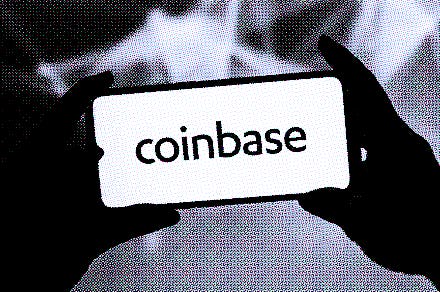Crypto exchanges are refusing to freeze Russian accounts because of “libertarian values”
I’m sure profit has nothing to do with it.

All of the biggest financial institutions across the globe have decided to stop doing business with Russia — a decision spurred by autocrat Vladimir Putin’s decision to invade Ukraine. Well, all of them except for cryptocurrency markets, that is. According to a report from Vice, some of the biggest cryptocurrency exchanges in the world including Coinbase, Binance, and Kraken Exchange have all rejected calls to freeze Russian accounts because it would run counter to the “libertarian values” of cryptocurrency.
The decision not to cut off Russian access to the exchanges and crypto-related assets comes as Ukraine’s Vice Prime Minister, Mykhailo Fedorov, asked directly for the services to ban all activity from Russian and Belarusian addresses. This, according to Fedorov, would ramp up the economic pressure on Russia and bring them to the negotiating table.
Crypto exchanges said no. A spokesperson for Binance, the largest crypto exchange in the world, told CNBC that it would comply with sanctions but nothing more. “Crypto is meant to provide greater financial freedom for people across the globe. To unilaterally decide to ban people’s access to their crypto would fly in the face of the reason why crypto exists,” a spokesperson for the company told the publication.
Other platforms took up this supposedly principled defense of crypto as well. KuCoin told CNBC that it is “a neutral platform.” The CEO of the U.S.-based Kraken Exchange took to Twitter to say that cryptocurrency is “the embodiment of libertarian values, which strongly favor individualism and human rights,” and for that reason, the company would not freeze Russian accounts “without legal requirement to do so.” Coinbase told Vice that it wouldn’t restrict Russians because it would interfere with their mission to “increase economic freedom in the world.”
This is not the response of a cryptocurrency exchange, but rather crypto-maximalist weirdo Mike Alfred, but it’s funny and ridiculous and so I’m including it: In response to Fedorov’s request to freeze Russian crypto accounts, Alfred tweeted that he was pulling his support for Ukraine. Frankly, his support probably wasn’t worth much to begin with. But the idea that he’s now fine with Russia killing innocent civilians because a politician asked for restrictions on cryptocurrency is truly the best distillation of the priorities of these crypto dorks.
Anyway! There’s no evidence that cryptocurrency exchanges have managed to increase economic freedom in the wake of war, but the conflict sure has increased activity on the exchanges themselves. According to a report from CoinDesk, trading between the Russian ruble and Bitcoin hit a nine-month high this week. While 1 in 10 Russians supposedly hold cryptocurrency, the country has placed restrictions on how much average citizens can hold, while rich oligarchs have reportedly eyed cryptocurrency as a way to skirt sanctions and protect their wealth.
Also, just real quick: If cryptocurrency exchanges were so concerned about upholding the principles of cryptocurrency, they would simply shut down. Platforms like Binance and Coinbase are centralized exchanges. They are middlemen who exist to process transactions and skim profits off the top of each trade; they often charge fees to even list specific currencies. Cryptocurrency and its “libertarian values” were explicitly built on decentralization, where these sorts of institutions are not supposed to be able to interfere. Vitalik Buterin, the cofounder of the cryptocurrency Ethereum, has gone so far as to say that centralized exchanges should “burn in hell” for violating the principles of cryptocurrency.
Cryptocurrency exchanges make it easier for the average person to exchange these digital assets, but they are inherently operating in opposition to crypto principles. But they don’t care about that because the exchanges are cashing in. The real reason they won’t freeze Russian accounts isn’t because of supposed values, it’s because thanks to war, more trades than ever are happening with those accounts. And by being the platform where those trades happen, these exchanges get to cash in on it.